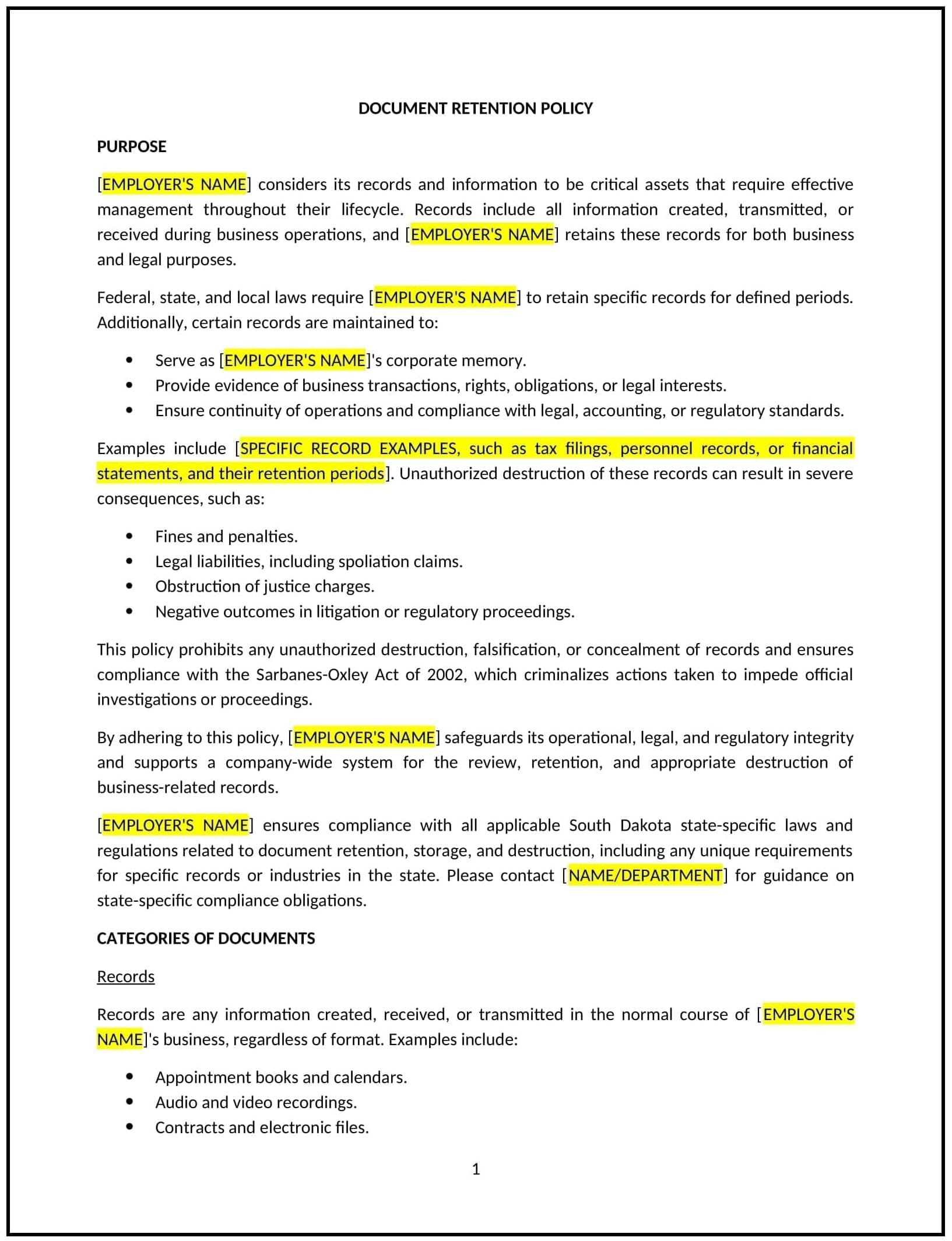Document retention policy (South Dakota): Free template
Got contracts to review? While you're here for policies, let Cobrief make contract review effortless—start your free review now.

Document retention policy (South Dakota)
This document retention policy is designed to help South Dakota businesses manage and maintain records in compliance with legal, regulatory, and operational requirements. It outlines retention periods, storage practices, and disposal procedures to safeguard sensitive information and support efficient operations.
By adopting this policy, businesses can enhance regulatory compliance, enhance information security, and streamline document management.
unknown nodeHow to use this document retention policy (South Dakota)
- Define document categories: Specify types of records covered by the policy, such as financial, legal, employee, and operational documents.
- Include retention periods: Outline the required retention periods for each document category, based on South Dakota laws and industry standards.
- Address storage practices: Provide guidelines for storing physical and electronic documents securely to prevent unauthorized access or damage.
- Establish disposal procedures: Detail the process for securely disposing of documents that have reached the end of their retention period.
- Monitor compliance: Assign responsibility for overseeing compliance with the policy and conducting regular audits.
- Provide training: Educate employees on document retention practices and their role in maintaining compliance.
- Update for legal changes: Revise retention periods and practices to reflect changes in South Dakota laws or business needs.
Benefits of using this document retention policy (South Dakota)
This policy provides several benefits for South Dakota businesses:
- Enhances compliance: Aligns with South Dakota laws and federal regulations for document retention.
- Improves security: Protects sensitive information from unauthorized access or breaches.
- Reduces liability: Minimizes legal and financial risks associated with improper record management.
- Streamlines operations: Provides clear guidelines for organizing and managing business records.
- Supports audits: Facilitates efficient responses to audits, investigations, or legal inquiries.
Tips for using this document retention policy (South Dakota)
- Communicate the policy: Share the policy with employees during onboarding and include it in internal resources, such as the employee handbook.
- Implement a tracking system: Use document management software to track retention periods and automate disposal schedules.
- Secure storage: Ensure both physical and electronic storage systems meet industry standards for information security.
- Conduct regular audits: Review document retention practices periodically to identify areas for improvement.
- Update regularly: Revise the policy to reflect changes in South Dakota laws, industry regulations, or company requirements.